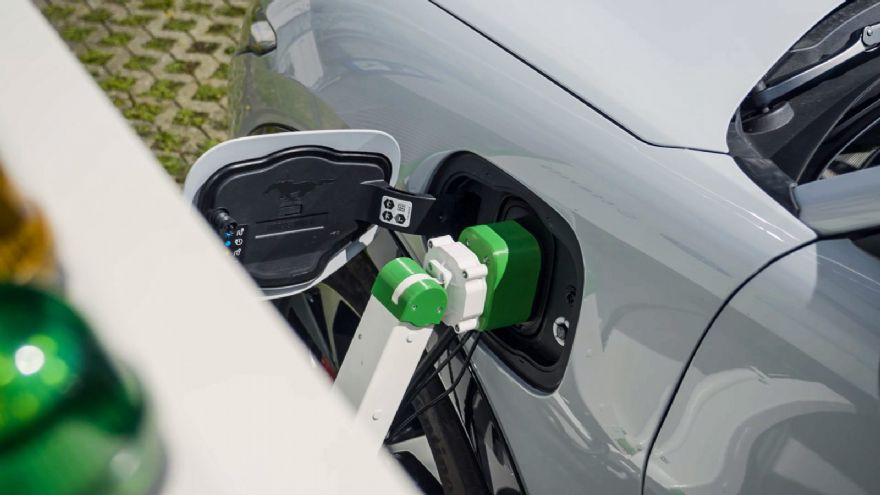
While filling a car with fuel or charging an electric vehicle (EV) is a simple task for most people, for disabled drivers, people with reduced mobility and older people it can be a significant challenge.
Now,
Ford has developed a prototype robot charging station that drivers operate via their smartphone from inside their EV, thereby enabling disabled drivers — who have identified ease of charging as a key purchase consideration for electric vehicles — to stay in the car while it is charging leaving the robot to do all the work.
Ford is testing the robot charging station as part of a research project to develop hands-free charging solutions for electric vehicles and fully automatic charging for autonomous vehicles. Following initial lab testing, company researchers are now putting the robot charging station to the test in real-life situations.
Once activated, the station cover slides open and the charging arm extends towards the inlet with the help of a tiny camera. For the trial, drivers were able to monitor the charge status via the
FordPass app; after charging, the arm retracts back into place.
In future, the robot charging station — custom-made in Germany by
Dortmund University — could be installed at disabled parking spaces, in car parks or at private homes. Further applications could include fast and efficient charging of company fleets.
The technology could also support more powerful charging to charge vehicles in a much shorter time; and looking ahead, the process could become fully automated, with minimal or no driver involvement. The driver would simply send the vehicle to the charging station, with the infrastructure ensuring it reaches and returns from its destination autonomously.
Ford says this research project complements the company’s commitment to electrification. A follow-up project with the charging network provider
Ionity will look to further improve the robot charging station. Ford is also researching into robot charging solutions in combination with automated valet parking, as demonstrated at the
IAA International Mobility Show in Munich last year.